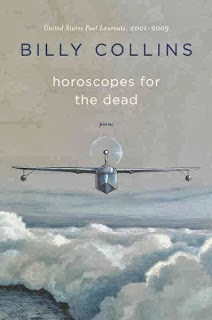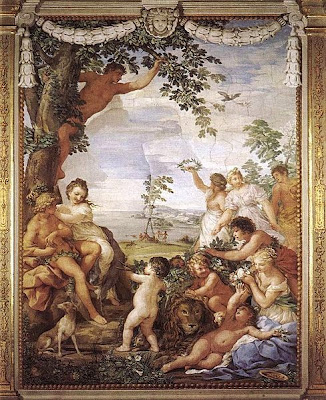Poetry and the Past
Reflection
Poetry
October 2013
Every now and then, more so these days, I need a little reminder that life isn't quite so serious as it's made out to be. Cosmic forces do not hang in the balance. There aren't answers to the all-consuming questions of life. And sometimes, there really isn't anything else I should be doing. I have yet to find a better way to jostle a melancholy mood than Billy Collins. The former Poet Laureate has mastered the art of embarrassing his readers back to a state of sober levity. The wit, insight, humor, and perfectly quotidian nature of his poetry mix wonderfully with an evening and a glass of wine.

Several of my favorite of his poems have floated back to mind as of late. I have been going through old boxes in the attic filled with keepsakes and notebooks from bygone years. Sorting through the pictures, essays, notes from girls, awards, ticket stubs, and European subway maps, reminded me of Collins' poem "On Turning Ten". The last stanza goes like this:
Being around high school kids all day has compounded these thoughts. I try to put myself in their shoes, imagining all of the things which used to occupy my mind. Then, I mostly thought of whichever girl I was fond of at the time. I was the kind of guy to fall really hard for one girl and then never do anything about it for years. I remember how I would try to interpret every little interaction, and how my stomach would tighten anytime she'd catch my eye. I cared about grades too, more so as I neared junior and senior year, but school itself was not in the foreground of my attention. I look at the students in my classroom now, trying to keep in mind that their brains are no different than mine was, and to them, there are more important things than physics.

Late last week, I heard one of them say, "Mr. Gardner I'm going to be an adult soon. My eighteenth birthday is in a few days." I smiled I said, "Good! Then you have no excuse for not making adult decisions!" But what I really wanted to say was, "I remember thinking that too." There is no convincing them of how much they will grow and change in the next ten years. There is no way to show them that, someday, they'll be looking down on kids saying the same thing and smiling a knowing smile.
Collins' poem "The History Teacher" describes a teacher who strives to protect his students' from the pain of the past, turning the Ice Age into the Chilly Age, an age where people simply needed to wear sweaters, and telling the story of how the Enola Gay "dropped one tiny atom on Japan." The teacher's students leave his class to continue tormenting the week and the smart, their "innocence" protected from messy history. I think Collins' point is something deeper than the cliche about repeating the past: rather, he is writing about how facing the past as it is can make us better, can make us grow.
We might pine for the days when all we cared about were our friends and our bicycles. Like in the Woody Allen film "Midnight in Paris", we might long for that Golden Age, that time when things were just a little more right, that time which always seems to be a little further back and more golden than is remembered by those who actually lived it. But in that longing and pining, I think we shortchange the present. The past is not a place in which we are supposed to live. Tradition for tradition's sake has always struck me as somewhat fallacious. The past has made us who we are; all the pains and joys sum to our whole.
I made plenty of stupid decisions growing up. I broke too many hearts, risked bodily injury too many times. But every little bit of it has brought me to now. I think I could tell Nietzsche's demon that, indeed, should my life be lived again, in the exact same way, I would be happy to live it. But that doesn't mean I can't face the future. On the contrary, leaving the past behind is the only way the sun ever rises, and some good poetry can keep you smiling as you face eastward.

The Golden Age by Pietro da Cortona